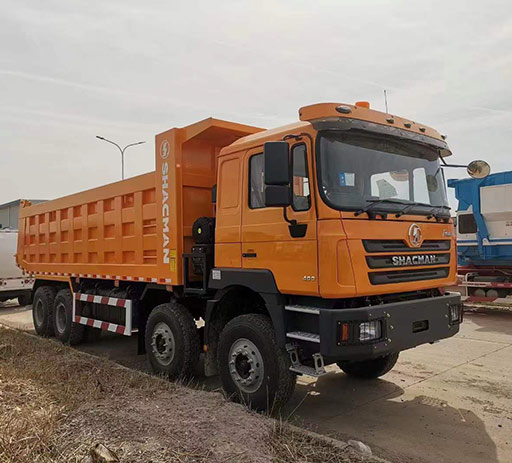Understanding Septic Pump Truck Cost: A Comprehensive Guide

Septic pump trucks play a critical role in maintaining the health and efficiency of septic systems, especially in areas where public sewage systems are not available. Understanding the costs associated with septic pump trucks can help homeowners and businesses make informed decisions when it comes to maintaining their wastewater systems. This article provides a detailed examination of septic pump truck costs, factors influencing them, and practical tips for choosing the right services.
What is a Septic Pump Truck?
A septic pump truck is a specialized vehicle equipped with a large tank and pump system used for the removal of wastewater from septic tanks and other holding systems. These trucks are essential for transporting sewage to treatment facilities. They can also perform additional services, such as grease trap cleaning and portable restroom service.
Factors Influencing Septic Pump Truck Cost
The cost of hiring a septic pump truck can vary significantly based on several factors:
1. Geographic Location
The cost of septic pump truck services can differ based on regional pricing and demand. Urban areas may have higher costs due to increased labor rates and operational expenses, while rural areas might offer lower rates but may involve longer travel times for the service provider.
2. Size of the Septic Tank
Septic tanks come in various sizes, typically ranging from 500 gallons to over 2,000 gallons. The larger the tank, the more it costs to pump and clean, as more time and resources will be required to complete the job.
3. Frequency of Service
Regular maintenance is crucial for septic systems. Homeowners with a history of regular service may benefit from lower rates due to established relationships with service providers, while first-time customers may incur additional fees.
4. Type of Waste
The type of waste being pumped can also affect costs. For instance, pumping regular household sewage may be less expensive than removing hazardous or industrial waste, which requires additional safety protocols and equipment.
5. Additional Services
Sometimes, the septic pump truck service includes additional services such as inspections, repairs, or treatments. These added services will influence the overall price. For instance, pumping out a tank with repairs can significantly increase the cost.
Typical Costs of Septic Pump Truck Services
Understanding the typical price ranges can help you budget for septic pump services effectively. Here’s a detailed overview:
| Service Type | Average Cost | Notes |
|---|---|---|
| Standard Septic Tank Pumping (1000 gallons) | $250 – $400 | Commonly needed every 3-5 years. |
| Grease Trap Cleaning | $150 – $300 | Regular maintenance for restaurants and commercial kitchens. |
| Emergency Pumping Service | $500 – $1,000 | Higher costs due to urgency and after-hours service. |
| Septic Tank Replacement | $3,000 – $7,000 | Includes costs for tank removal and new tank installation. |
Types of Septic Pump Trucks
Understanding the types of septic pump trucks can help in estimating costs and selecting the right service. Here are some common types:
1. Standard Septic Pump Trucks
These trucks are equipped with a vacuum system that efficiently removes waste from septic tanks. They are used for residential and commercial pumping services.

2. High-Pressure Truck Wash Systems
These are specialized vehicles designed for heavy-duty cleaning tasks. They can be used for larger tanks and systems that require thorough cleaning.
3. Liquid Waste Haulers
These trucks are often used in commercial settings for non-septic waste removal, like grease traps or industrial waste. They may come at a higher cost due to the potential hazards involved.
4. Portable Restroom Service Trucks
Although not primarily for septic tanks, these trucks are crucial for pumping out and maintaining portable restroom facilities, especially at events.
How to Choose a Septic Pump Truck Service
When selecting a septic pump truck service, consider the following factors:
1. Research Local Providers
Start with online reviews and ratings for septic service providers in your area. Customer feedback can provide insight into the quality of service and reliability.

2. Inquire About Experience
Choose a company with a good amount of experience in the field. A well-established business is likely to provide better service and expertise.
3. Verify Licensing and Insurance
Ensure that the service provider has all the necessary licenses and insurance. This protects you from liability in case of accidents or damages during the service.
4. Request Quotes
Obtain quotes from multiple service providers to compare costs. Be sure to understand what services are included in the pricing.
5. Check for Additional Services
Ask about any additional maintenance services they offer. Some companies may provide regular inspections or recommend treatments to maintain your septic system.
Practical Tips for Maintaining Your Septic System
Maintaining your septic system can help reduce the need for frequent pumping and increase the lifespan of your system. Here are some practical tips:
1. Regular Inspections
Schedule regular inspections of your septic system (at least every 1-3 years) to catch potential issues early.
2. Mind Your Water Usage
Excessive water usage can overwhelm your septic system. Fix leaks and consider water-efficient appliances.
3. Be Careful About What You Flush
Avoid flushing anything other than human waste and toilet paper. Items like wipes, feminine products, and even some cleaning chemicals can harm your system.
4. Maintain Your Drain Field

Keep vehicles and heavy equipment away from your drain field. Excess weight can compact the soil and impede the system’s function.
Cost-Saving Strategies for Septic Pump Services
Here are some strategies to save on septic pump truck costs:
1. Be Proactive with Maintenance
Regular maintenance can prevent costly repairs and reduce the frequency of pump-outs, ultimately saving you money.
2. Join a Service Plan
Some companies offer service plans that include regular pumping at a discounted rate.
3. Look for Promotions
Many septic service companies offer seasonal promotions or discounts for first-time customers. Keep an eye out for these opportunities.
4. Referrals and Reviews
Ask friends or family for recommendations. Many companies also offer discounts for referrals.
FAQs About Septic Pump Truck Cost
1. How often should I pump my septic tank?
Generally, septic tanks should be pumped every 3-5 years, depending on usage and tank size.
2. What happens if I don’t pump my septic tank?
If not pumped regularly, your septic tank can overflow, leading to backups, costly repairs, and health hazards.
3. Can I clean my septic tank myself?
It is not recommended to clean your septic tank yourself due to safety hazards and potential legal regulations.
4. Do I need to be home during the pumping service?
It’s not typically necessary to be home, but it’s beneficial to inform the service provider about your system’s specifics.
5. Are there hidden costs in septic pumping services?
Always clarify with your provider about any additional costs, such as disposal fees or extra services, to avoid surprises.
6. How can I find a reputable septic pump truck service?
Research online reviews, ask for recommendations, verify licensing, and request quotes from multiple providers.
